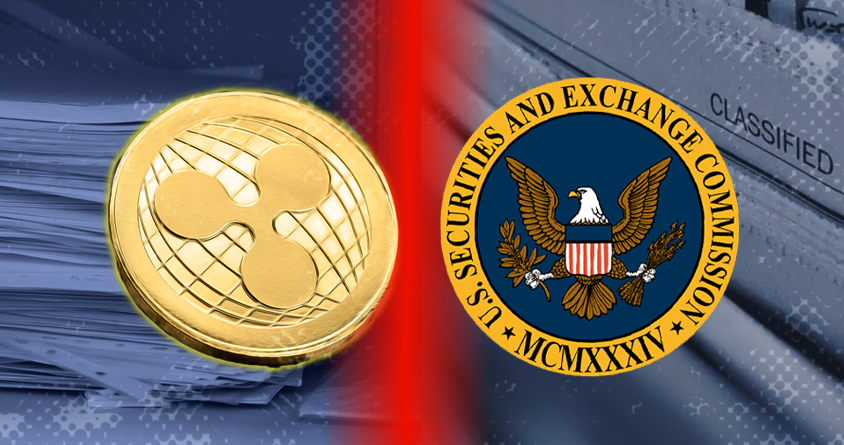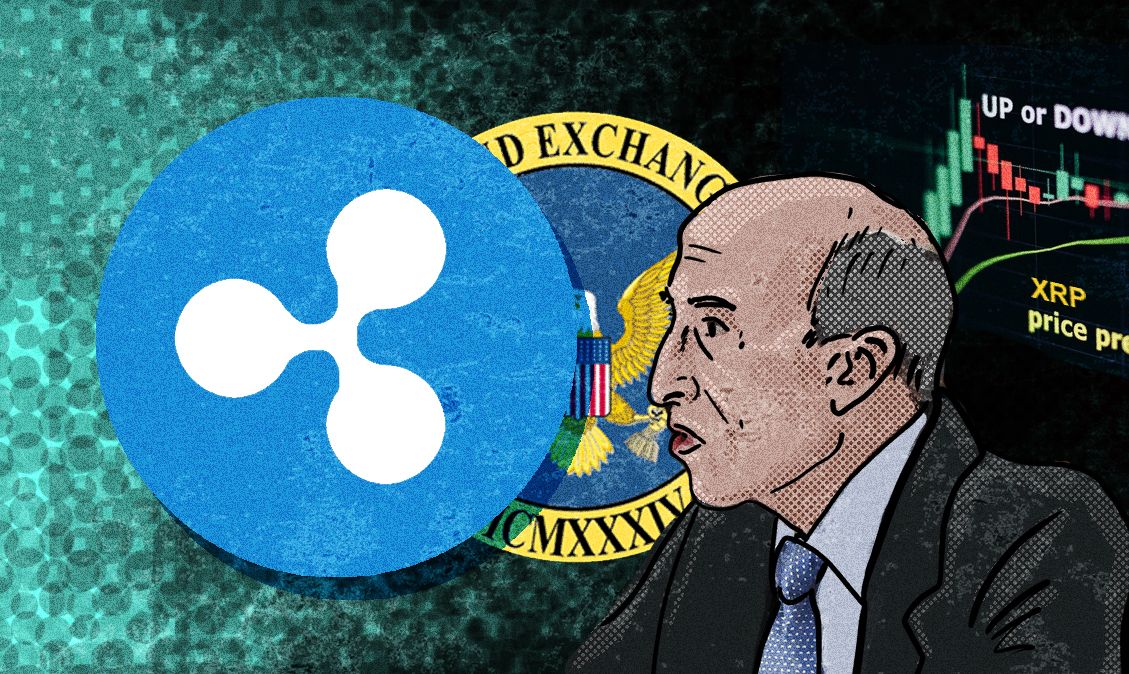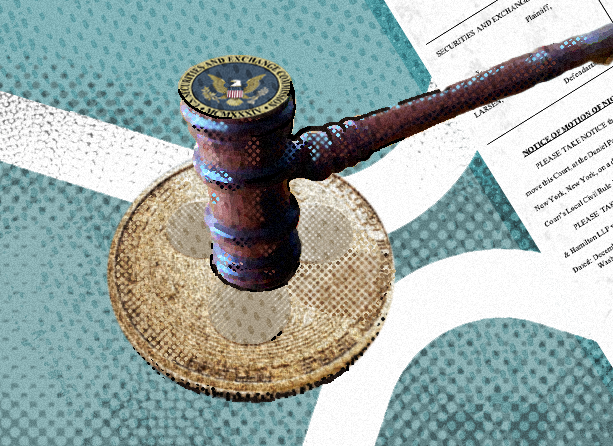
A Long-Awaited Ruling
Ripple Labs has secured a partial victory in its high-profile legal battle against the Securities and Exchange Commission (SEC) as Judge Analisa Torres issued a ruling in favor of Ripple. This represents a major milestone for Ripple and the crypto industry.
The ruling provided clarity on the classification of Ripple's XRP token. Judge Torres determined on July 13 that XRP should not be considered a security when it comes to programmatic sales conducted on digital asset exchanges.
It important to note that programmatic sales in this ruling do not refer to all secondary market sales of XRP and such sales can still constitute the sale of a security. What is decided is that when Ripple Labs sold XRP to the general public through a digital asset exchange that such sales were not the sales of securities.
Specifically, Judge Torres ruled that the sales of XRP on public crypto exchanges did not qualify as offers of securities, as purchasers did not have a reasonable expectation of profit linked to Ripple's efforts. These sales were characterized as "blind bid/ask transactions" where buyers were unaware if their payments went to Ripple or other sellers of XRP.
In addition, Judge Torres ruled that XRP sales on cryptocurrency platforms by executives Brad Garlinghouse and Chris Larsen, as well as other distributions, including employee compensation, were not classified as securities.
At the same time, the ruling once again emphasized that XRP does meet the definition of a security for sales made to institutional investors, based on the criteria established by the Howey Test.
The Howey Test is a legal assessment used by U.S. courts to determine whether a transaction qualifies as an investment contract and thus falls under the definition of a security. It takes its name from the landmark Supreme Court case SEC v. W. J. Howey Co., which established the test in 1946. More information here.
The SEC had sought to halt Ripple from offering XRP, arguing that it constituted an unregistered security. The court's decision granted summary judgment in favor of Ripple for programmatic sales, other distributions, and sales made by company executives. Summary judgment was denied for institutional sales, indicating that further legal proceedings will be required to address this aspect.
Background
The legal battle between Ripple and the SEC began in December 2020, when the latter filed a lawsuit against the tech firm and its executives, Brad Garlinghouse and Chris Larsen. The SEC's allegations centered around Ripple's purported offering of an unregistered security through the sale of its XRP token.
The case has since been marked by a series of legislative exchanges and contentious developments. One notable occurrence was the release of the Hinman documents, pertaining to a speech delivered in 2018 by former SEC official William Hinman, who expressed the view that transactions involving Ethereum (ETH) should not be considered securities transactions, distinguishing it from other cryptocurrencies. The long awaited release of these documents fueled demands for transparency and raised questions about potential bias in the SEC's regulatory approach.
Throughout the proceedings, Ripple's CEO, Brad Garlinghouse, has exhibited a defiant stance in the face of the SEC's accusations and openly criticized the regulator and its handling of the case. The case has drawn significant attention from industry actors and observers, as it holds implications not only for Ripple but also for the broader crypto ecosystem.
Implications and Impact
The crypto community is now fueled by the belief that Ripple's legal triumph could provide ammo for other crypto firms currently engaged in similar disputes with the SEC. The ruling is seen as a turning point that will help shape future legal battles and influence the regulatory approach toward digital assets.
News of the case triggered a surge in the value of XRP, with the token's price increasing by 25% in the hour following the announcement, and by a remarkable 96% in the past day. XRP reached its highest level since March 2022, peaking at 93.8 cents before stabilizing at 78 cents at the time of reporting. Many majors, such as BTC and ETH, have also seen a price increase following the ruling.
Several crypto exchanges have announced they plan to list Ripple's token on their platforms. Coinbase stated that it would restart trading activities for XRP once there is sufficient liquidity. Gemini expressed its intention to explore listing XRP for spot and derivatives trading. Kraken announced that XRP trading is live for U.S. users on its platform, and Bitstamp confirmed the immediate re-listing of XRP, highlighting its status as an early supporter of the token.
Garlinghouse described the court's decision as a "huge win for Ripple but more importantly for the industry overall in the U.S."
While Ripple celebrates this victory, it's important to acknowledge that the ruling could still be subject to appeal once a final judgment is issued or if Judge Torres allows an earlier appeal. The SEC, despite securing a partial victory in the case, is currently reviewing the decision and will determine its next steps accordingly.
The outcome of the Ripple-SEC lawsuit holds broader significance for the cryptocurrency industry as it directly challenges the regulator's claim that numerous crypto tokens qualify as securities under its regulatory purview. This ruling has reignited discussions for the need of legislative clarity and regulatory frameworks that can establish clear guidelines for digital assets. This case marks a significant milestone for Ripple and everyone involved in the industry. We'll continue to Observe.
The Complete Timeline
You can check our coverage of the Ripple v. SEC case:
- July 13, 2023: Judge Torres ruled that XRP is not a security in the case of programmatic sales but that the token does meet the definition of security for sales made to institutional investors. This decision has prompted various crypto exchanges, including Coinbase, Gemini, Kraken, and Bitstamp, to announce plans to list Ripple's token on their platforms, indicating growing acceptance and positive momentum for the broader crypto market.
 Mathilde AdamObservers.com
Mathilde AdamObservers.com
- June 13: The Hinman documents were expected to be released.
- June 5: The SEC removed Hinman's biography from its website.
- May 19: Reports emerged that the SEC and Ripple filed a joint letter requesting an extension to submit the Hinman speech.
- May 16: Judge Torres rejected the SEC's motion to keep the Hinman speech sealed.
 Mathilde AdamObservers.com
Mathilde AdamObservers.com
- April 18: SEC Chair Gary Gensler testified at a congressional hearing without revealing whether ether was considered a security.
- April 16: John E. Deaton shared a 2018 video featuring Tim Draper and Gary Gensler discussing potential lawsuits and the influence on financial regulators.
- March 6: Judge Torres issued an initial ruling excluding expert testimony from the summary judgment process in Ripple's legal battle with the SEC.
 ObserversObservers.com
ObserversObservers.com
- March 3: Ripple filed a Supreme Court letter to Judge Torres.
- January 2023: Multiple organizations, including Coinbase, submitted amicus briefs in support of Ripple.
- November 30, 2022: SEC and Ripple submitted final submissions to the summary judgment motions.
- November 7, 2022: The LBRY blockchain lost a similar case against the SEC, resulting in a decline in XRP's value.
- September 2022: Both the SEC and Ripple filed motions for summary judgment.
- January 24, 2022: Judge Netburn granted the SEC until February 17 to appeal her decision regarding sensitive government documents in the case.
- August 31, 2021: Ripple filed a motion requesting the SEC to disclose its internal crypto trading policies.
- June 14, 2021: The SEC's deadline for disclosing internal crypto trading policies was extended.
- April 13, 2021: SEC Commissioner Hester M. Peirce published the Token Safe Harbor Proposal 2.0.
- March 22, 2021: Judge Netburn distinguished XRP from BTC and ETH in terms of currency value and utility.
- March 8, 2021: The SEC requested an immediate hearing in response to Ripple's arguments.
- January 1, 2021: XRP holders led by John E. Deaton contested the SEC's lawsuit, arguing that XRP is not a security.
- December 21, 2020: The SEC filed a lawsuit against Ripple Labs, Garlinghouse and Larsen.

